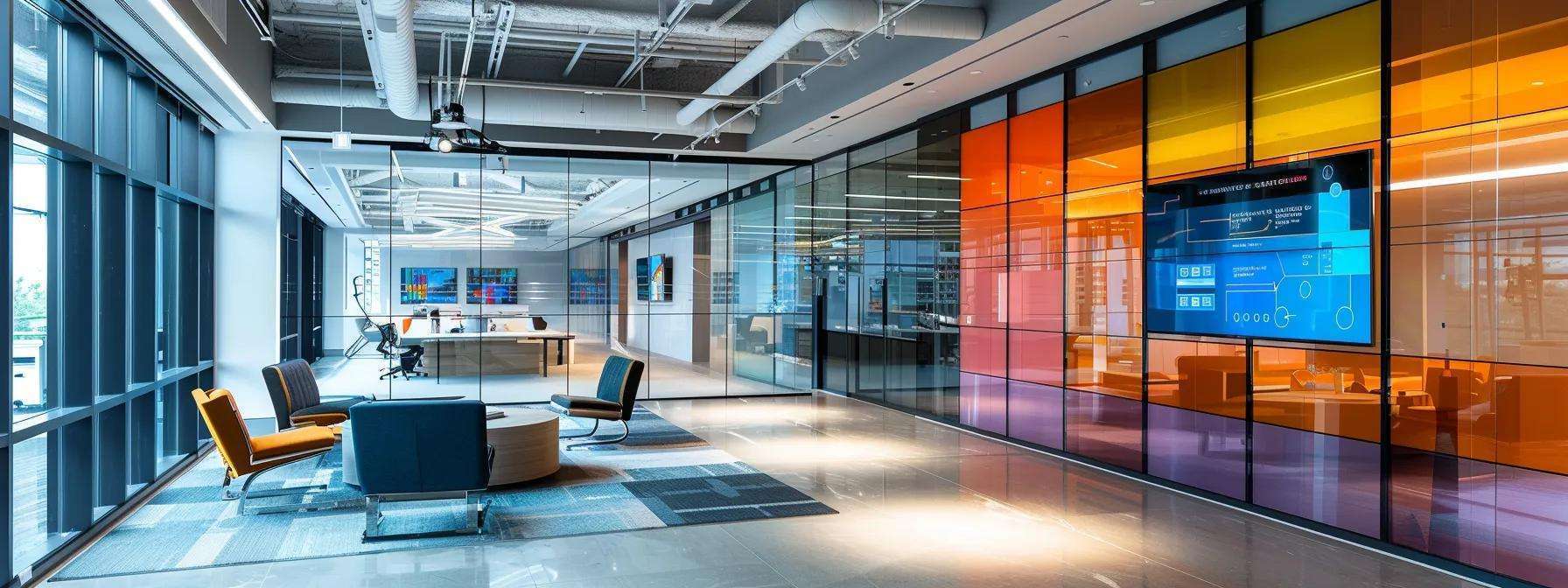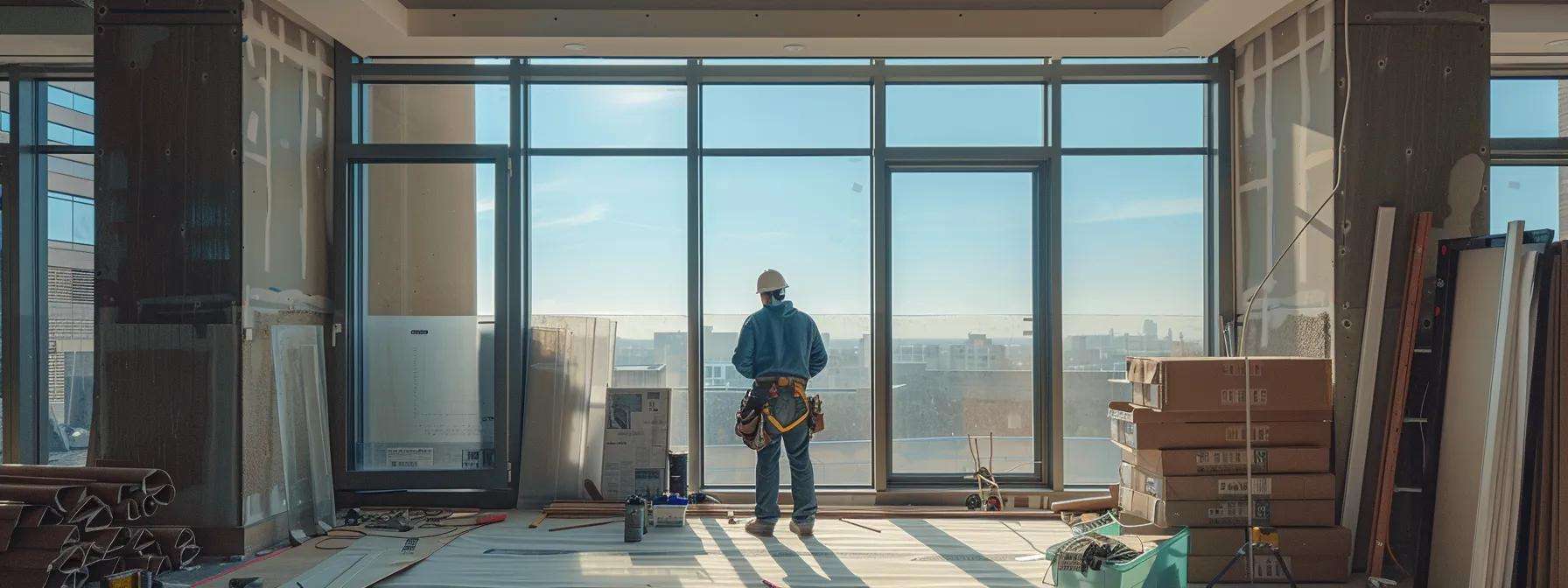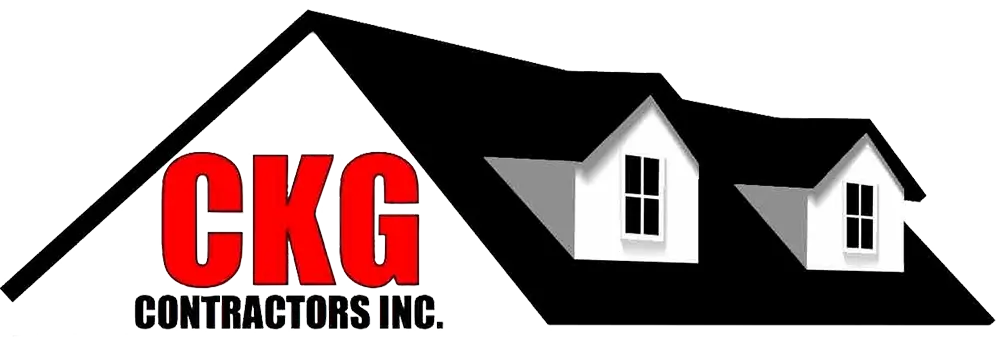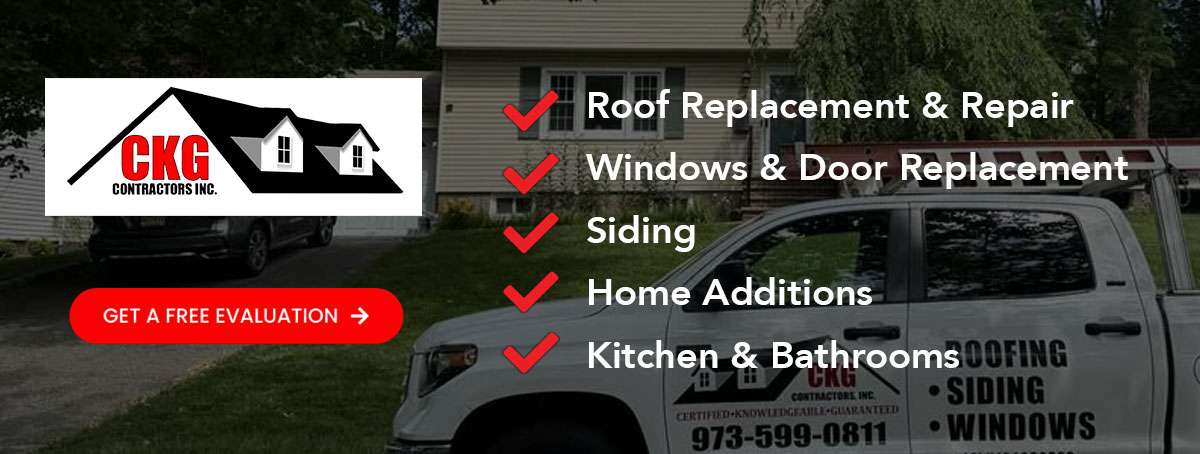
Table Of Contents:
- How Long Does a Typical Window Replacement Project Take in New Jersey?
- What Are the Step-by-Step Phases in a New Jersey Window Replacement Project?
- How Do New Jersey Building Codes and Permits Impact the Window Replacement Timeline?
- How Does Window Type Influence Replacement Duration and Process in New Jersey?
- What Role Does Energy Efficiency Play in the Window Replacement Timeline?
- How Much Does Window Replacement Cost in New Jersey and How Does It Affect Project Timing?
- How Can Homeowners Prepare to Ensure a Smooth and Timely Window Replacement in New Jersey?
- Frequently Asked Questions
The process of replacing windows in your New Jersey home or commercial property can feel complex and time consuming, especially when balancing project cost, weather considerations, and municipal regulations. At CKG Contractors, Inc., we are committed to ensuring that each window replacement project is executed with transparency, expertise, and efficiency. In this comprehensive guide, I will walk you through the typical timelines of window replacement projects in New Jersey—from consultation and measurement to installation, final inspections, and follow-up adjustments.
In this article, we address common questions regarding average timeframes for residential window replacements in New Jersey and explore how different window types—whether bay, casement, or double-hung—affect overall project duration. We also examine external factors such as New Jersey building codes and permit requirements that can influence the timeline. This guide provides an in-depth understanding of each step so you know what to expect, helping you plan for minimal disruption and effective budgeting. Whether you are opting for high-performance energy-efficient windows or replacing aging vinyl units, we cover every aspect of the project.
Our goal is to help you make informed decisions—from selecting the right material and design to aligning your renovation schedule with permit processes and contractor availability. Read on for detailed descriptions of each project phase, factors that may expedite or delay progress, and tips on saving time and money.
How Long Does a Typical Window Replacement Project Take in New Jersey?
The overall duration of a window replacement project in New Jersey depends on factors like the number and type of windows, weather conditions, and unforeseen complications. Typically, a residential project spans one to three weeks, though high-end or custom projects may extend beyond this range.
What Are the Average Timeframes for Residential Window Replacement?
A typical replacement follows several phases: • Consultation & Assessment: A contractor conducts an on-site evaluation and takes measurements, usually lasting one to two days. • Ordering: Once you approve an estimate, window and material orders are placed. Procurement can take one to two weeks depending on lead times. • Installation: With materials in hand, installation for an average home generally takes three to five days. Projects with multiple stories or special requirements may take longer. • Final Inspection & Cleanup: A thorough inspection and cleanup last about one day.
Homeowners should plan for potential delays from weather, unexpected repairs to old frames, contractor scheduling, or supply shortages. Clear communication with your contractor is key to addressing such issues.
How Do Window Types Affect Replacement Duration?
The selection of window type greatly influences project duration: • Standard Windows (Double-Hung/Slider): These are easier to replace with straightforward removal and installation. • Custom or Specialized Windows (Bay, Bow, Casement): These require intricate measurements, additional carpentry or structural modifications, and specialty tools; installation time may double. • Energy-Efficient Windows: Often heavier and requiring precise sealing, these may add an extra half-day to a full day per unit.
What Are the Step-by-Step Phases in a New Jersey Window Replacement Project?

A structured approach ensures high-quality installation with minimal disruption. The project is divided into clear phases:
How Is the Initial Consultation and Measurement Scheduled?
A successful project begins with a consultation where a contractor: • Assesses your needs and takes detailed measurements. • Reviews current window conditions, desired energy efficiency, and any required modifications. • Discusses necessary permits and documentation. This critical meeting, typically scheduled within a few days, lays the foundation for accurate ordering and subsequent scheduling.
What Happens During Window Ordering and Delivery?
After the consultation: • The contractor finalizes design specifications (window type, color, glazing, energy ratings) with you. • An order is placed with a trusted supplier or manufacturer. • Ordering can take one to two weeks, influenced by lead times and order complexity. • Delivery logistics are coordinated so that windows arrive on time and are checked for quality. Contingency plans are discussed if delays or defects occur.
How Is the Installation Process Conducted?
The installation phase is the project’s core: • Removal: Old windows are removed carefully to avoid damage. • Preparation: The installation team inspects and, if needed, repairs existing frames. • Fitting: New windows are aligned and secured with high-quality sealing materials. • Extra attention is given in New Jersey to insulation and proper flashing to prevent future issues. • A quality assurance phase follows, where each window is tested for proper function, alignment, and sealing, with the job site cleaned thoroughly afterward.
What Does the Final Inspection and Cleanup Involve?
After installation: • A detailed final inspection checks that all work meets project standards and local codes. • Both the installation team and an independent specialist review each window. • Any issues identified are promptly corrected. • All debris and excess materials are removed, and a walkthrough with the homeowner ensures they understand maintenance and warranty details.
How Do New Jersey Building Codes and Permits Impact the Window Replacement Timeline?
New Jersey’s stringent building codes and permit requirements significantly impact project timelines. Understanding these regulations helps prevent delays.
When Are Permits Required for Window Replacement in NJ?
Permits are typically required if: • The project involves structural changes or affects the building’s thermal envelope. • You are upgrading to larger custom windows, installing energy-efficient units that need framing modifications, or working on historic properties. Permits ensure compliance with safety, fire egress, and energy efficiency standards. A contractor will guide you through the permit application process, which can take from several days to two or three weeks.
How Long Does Permit Approval Usually Take?
Permit approval time varies: • For straightforward projects without structural changes, permits may be approved in seven to ten days. • Complex projects or those requiring multiple permits may take one to three weeks. Contractors with established relationships with local officials can often expedite the process, though it is wise to factor in additional time for administrative delays.
What Are Key Building Code Requirements Affecting Installation?
New Jersey building codes govern: • Structural Integrity: Replacement windows must maintain or exceed the fire rating and overall strength of the originals. • Energy Efficiency: Windows must comply with specific U-factor and solar heat gain ratings (often aligned with Energy Star standards). • Installation Methods: Proper sealing, insulation, and use of approved materials are required to prevent air and water leaks. Meeting these standards may require minor adjustments during installation, slightly extending project time but ensuring long-term performance and compliance.
How Does Window Type Influence Replacement Duration and Process in New Jersey?

Different window designs have unique installation requirements:
What Is the Typical Timeline for Double-Hung Window Replacement?
Double-hung windows are popular because: • They come in standardized sizes. • The removal and installation process is straightforward. Typically, replacing one window takes one to two days, making it efficient for installations with minimal structural alterations.
How Long Does Casement Window Replacement Usually Take?
Casement windows, which open outward: • Require precise installation of hinges, latches, and weather-stripping. • On average, take approximately 50% longer to install compared to double-hung windows. Each casement window may require one to two days of careful work, especially in older homes where frame adjustments are necessary.
What Are the Time Considerations for Bay and Slider Windows?
• Bay Windows: Their protruding design demands extra carpentry and sometimes structural modifications, adding one to three extra days per unit. • Slider Windows: Installed on horizontal tracks, these windows require precise leveling and balance. Typically, slider replacement can be completed in about two days per unit. Both options offer unique aesthetic benefits but require additional planning and time.
What Role Does Energy Efficiency Play in the Window Replacement Timeline?
Energy efficiency is a critical aspect of modern window replacement, influencing both installation and overall project duration.
Do Energy-Efficient Windows Require Longer Installation Times?
Energy-efficient windows are designed with multi-pane constructions, low-emissivity coatings, and advanced insulating materials. Because they: • Are often heavier and more complex, • Require precise sealing and insulation, installation may take 10% to 20% longer than standard windows. This extra time ensures optimal energy performance and long-term savings.
How Do Rebates and Incentives Affect Project Scheduling?
Many state and federal programs offer rebates for energy-efficient windows. While these financial incentives: • Help offset costs, they sometimes require additional paperwork and inspections. This administrative process can add a few days to several weeks to your timeline. Contractors can assist in streamlining rebate applications so that any delays are minimized.
What Are the Benefits of Choosing Energy-Efficient Windows in NJ?
Choosing energy-efficient windows provides benefits such as: • Superior thermal performance to reduce energy bills, • Increased indoor comfort with fewer drafts, • Enhanced resale value and lower carbon footprint. Rebates, tax credits, and quieter indoor environments further underscore the value of selecting these windows.
How Much Does Window Replacement Cost in New Jersey and How Does It Affect Project Timing?

The cost of window replacement in New Jersey is multifaceted, impacting both your budget and project timeline.
What Are the Typical Cost Ranges for Window Replacement Projects?
Costs vary based on: • Window Type: Standard double-hung windows generally range from $500 to $1,200 per window. Custom designs like bay, bow, or slider windows can cost $1,500 or more per unit. • Additional Services: Removal of old windows, structural repairs, and insulation upgrades can add to the total cost. • Materials and Labor: Premium materials like fiberglass or custom wood, and higher labor rates in New Jersey, further affect pricing. Investing in higher quality windows typically results in lower energy bills and long-term savings, and many projects come with warranties for added peace of mind.
How Do Financing Options Influence Project Scheduling?
Financing options, such as home improvement loans, can: • Make higher quality windows more affordable, • Introduce a delay in the project start due to pre-approval or paperwork. Once financing is secured, projects usually proceed without interruption. Some contractors work with preferred financing partners to simplify the process and maintain scheduling.
What Factors Affect Both Cost and Duration?
Factors influencing both cost and duration include: • Age and Condition: Older windows or structures may require extra repairs. • Materials: High-end or custom windows have longer lead times and higher costs. • Installation Complexity: Structural modifications or extensive weatherproofing add time and expense. • Contractor Scheduling and Material Availability: These can cause delays if multiple projects coincide or if supply chain issues arise. A thorough consultation helps identify these variables and allows for a realistic timeline and budget.
How Can Homeowners Prepare to Ensure a Smooth and Timely Window Replacement in New Jersey?
Homeowner preparation is essential to minimize delays and ensure project success. Here are key steps:
What Should Homeowners Expect Before Installation Day?
Prior to installation, expect: • A detailed consultation where the contractor assesses current windows, takes measurements, and discusses needs. • An estimate detailing total cost, timeline, and any special conditions. • Arrangements for permits and approvals from local building departments. • Preparation of the work area—clearing items, securing pets or children, and ensuring unobstructed access. A clear project schedule will be provided so you can plan your daily activities accordingly.
How Can Choosing the Right Contractor Affect Project Duration?
A qualified contractor with local New Jersey experience: • Understands building codes and permit processes. • Develops a detailed timeline and manages supplier coordination. • Provides clear communication and swift resolution of any issues. Choosing CKG Contractors, Inc., means benefiting from streamlined processes, comprehensive warranties, and adherence to energy efficiency standards, reducing the likelihood of delays.
What Are Common Customer Questions About the Window Replacement Timeline?
Homeowners often ask: • How long each phase will take. • Whether weather or permit issues could cause delays. • How disruptions to household routines will be managed. Clear explanations at the outset help set realistic expectations and maintain confidence throughout the project.
What Are the Most Frequent Delays in NJ Window Replacement Projects?
Common delays include: • Adverse weather conditions. • Permit or inspection delays. • Supply chain disruptions or unexpected structural repairs. Experienced contractors build buffer times into their schedules and work closely with homeowners to mitigate these delays.
How Can Communication With Installers Improve Project Efficiency?
Robust communication between you and the installation team: • Helps identify and resolve issues quickly. • Ensures that any changes in schedule are promptly addressed. • Maintains clear expectations throughout the project. Regular updates and proactive discussion significantly enhance overall efficiency and reduce uncertainties.
Frequently Asked Questions
Q: How do I know if my New Jersey home requires a permit for window replacement? A: Permits are generally required if your project involves structural modifications or changes to energy efficiency. Consult with your contractor or local building department to verify your specific requirements.
Q: Can adverse weather conditions delay my window replacement project? A: Yes, heavy rain, snow, or high winds can slow the removal of old windows and delay installation. Contractors typically build weather delays into the schedule and communicate any changes promptly.
Q: What should I do if my project takes longer than expected? A: Maintain open communication with your contractor to understand the cause of delays, such as permit issues or unexpected repairs. Regular updates and contingency plans help manage extended timelines.
Q: How can energy-efficient windows affect the overall cost and schedule of my project? A: Energy-efficient windows may extend installation time slightly due to additional sealing requirements, but they offer long-term savings on energy bills. Rebates and tax incentives can also help offset higher initial costs.
Q: What are the benefits of having a professional handle my window replacement project? A: A professional contractor ensures installations meet manufacturer standards and local codes, improves energy efficiency, minimizes disruptions, and provides warranties for peace of mind.
Before beginning your window replacement project, use the checklist above to ensure your project stays on schedule and within budget. Regular coordination with your contractor and proactive management of these factors can result in a smoother, more efficient home improvement experience.




